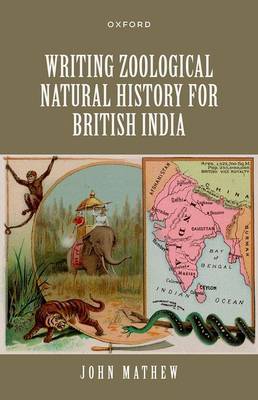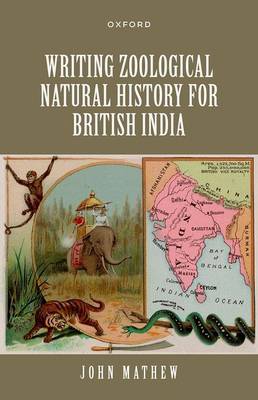
- Afhalen na 1 uur in een winkel met voorraad
- Gratis thuislevering in België vanaf € 30
- Ruim aanbod met 7 miljoen producten
- Afhalen na 1 uur in een winkel met voorraad
- Gratis thuislevering in België vanaf € 30
- Ruim aanbod met 7 miljoen producten
€ 181,95
+ 363 punten
Omschrijving
This book examines the critical role played by colonial peripheries, specifically British India, in shaping the development of zoology and other disciplines emerging from 19th-century natural history. Through an analysis of publications such as the monumental Fauna of British India series (1888-1949), it explores how zoology became a site of contestation between European metropolitan centres and colonial territories. While taxonomy and comparative anatomy dominated scientific endeavours in Europe, colonial naturalists-primarily European expatriates-engaged in a localized form of natural history and taxonomy that significantly influenced the field. Central to this narrative is the figure of the 'translocate, ' a term introduced to describe Europeans who lived and worked extensively in colonial contexts. These intermediaries bridged colonial and metropolitan scientific communities, asserting dual authority: they claimed a superior understanding of the local environment while navigating and often dismissing indigenous knowledge systems within an asymmetrical power dynamic. By doing so, it repositions the colonial periphery as a critical space in the global development of zoological knowledge, highlighting the complex interplay of authority, power, and knowledge production during the colonial era.
Specificaties
Betrokkenen
- Auteur(s):
- Uitgeverij:
Inhoud
- Aantal bladzijden:
- 416
- Taal:
- Engels
Eigenschappen
- Productcode (EAN):
- 9780198932185
- Verschijningsdatum:
- 13/11/2025
- Uitvoering:
- Hardcover
- Formaat:
- Genaaid
- Afmetingen:
- 140 mm x 216 mm

Alleen bij Standaard Boekhandel
+ 363 punten op je klantenkaart van Standaard Boekhandel
Beoordelingen
We publiceren alleen reviews die voldoen aan de voorwaarden voor reviews. Bekijk onze voorwaarden voor reviews.









